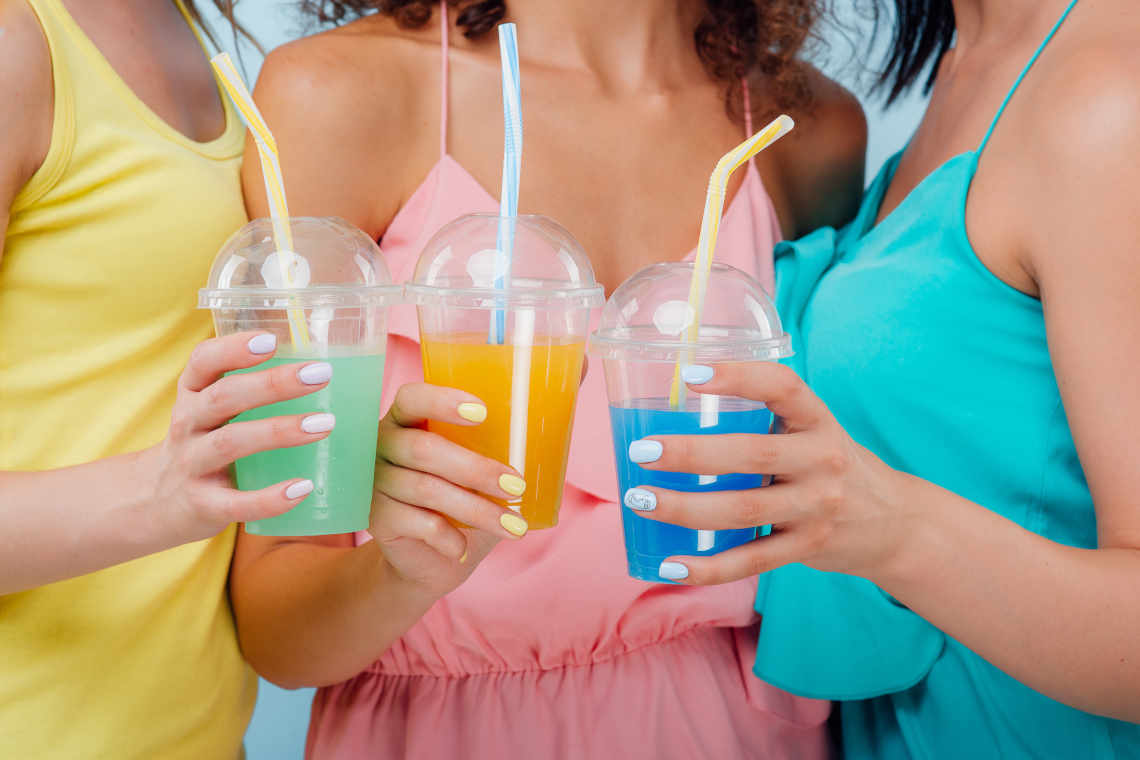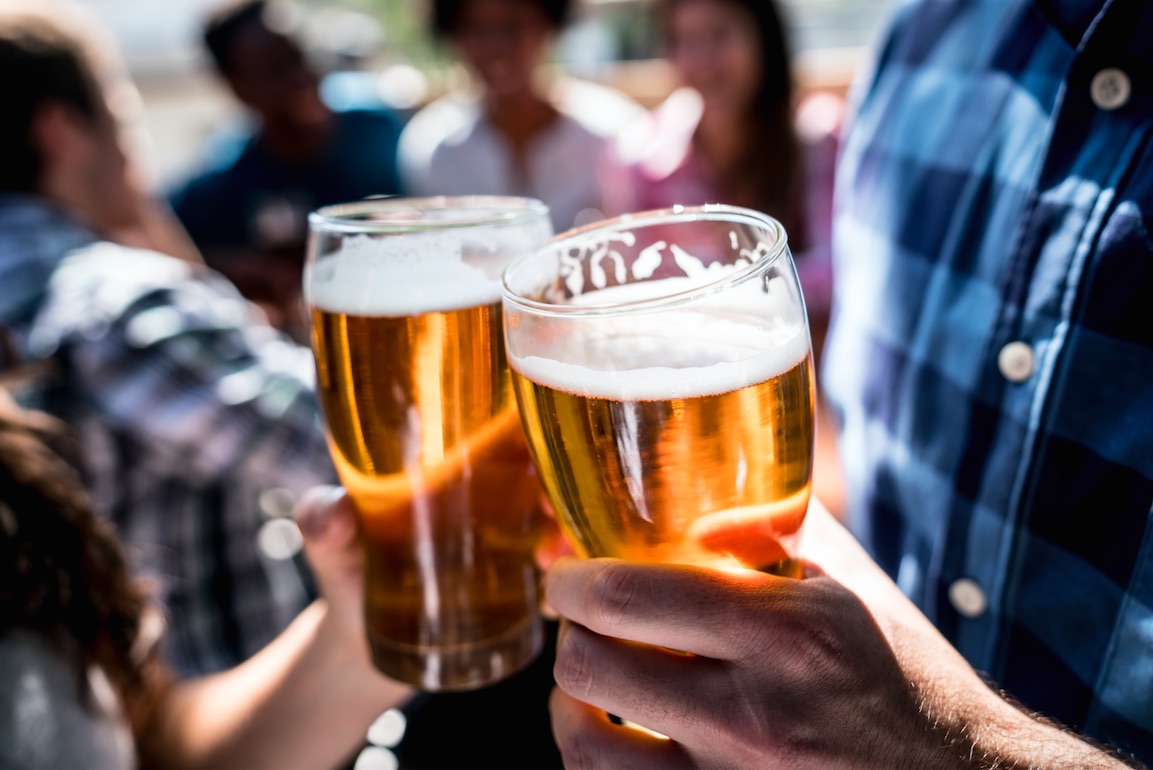Beverage Taste Testing Market Research

The food and beverage industry is thriving and has witnessed an unprecedented surge in consumer demand for diverse flavors, health-centric options, and sustainable choices. For this reason, beverage taste-testing market research is essential to obtain insights into consumer preferences, emerging trends, and potential growth areas for businesses.
Benefits of Beverage Taste Testing Market Research
Beverage taste testing market research guides businesses in the vast and competitive food and beverage industry and helps them succeed with key data. These are some of the most important benefits of investing in this type of research:
- Informed Product Development: Beverage taste testing market research delivers critical feedback on flavor profiles, ingredient preferences, and desired mouthfeel, enabling brands to fine-tune their products.
- Competitive Edge: This research can help businesses identify unique flavor combinations, unmet consumer needs, and niche market segments, giving them an edge over competitors.
- Strategic Marketing and Positioning: By understanding what consumers love, like, or dislike about a beverage, companies can tailor their marketing messages, highlight the most appreciated features, and position their products effectively in the marketplace.
- Forecasting and Trend Spotting: Regular market research can help businesses anticipate shifts in consumer preferences, allowing them to be proactive rather than reactive.
- Enhanced Brand Loyalty: Engaging consumers in product development through taste tests fosters a sense of involvement and ownership. When consumers feel their opinions are valued, it can increase brand loyalty and advocacy.
Opportunities in Beverage Taste Testing Market Research for Businesses

Beverage taste testing market research opens many opportunities for businesses to tap into. Here’s a look at some potential areas of exploration and growth:
- Subscription-Based Beverage Services: The success of subscription models in various sectors can be mirrored in beverages. Imagine a monthly box curated based on one’s taste preferences, dietary needs, and mood patterns.
- Tech-Driven Personalization: Incorporating AI and data analytics can help businesses offer personalized beverage recommendations. For instance, a machine learning model could predict a customer’s flavor preferences based on past purchases.
- Sustainability Initiatives: There’s a robust demand for sustainable packaging and eco-friendly beverage options – and businesses can explore biodegradable packaging, reusable bottle incentives, or even water-saving production methods.
- Experience Centers: Brands can create experiential centers or pop-up tasting lounges where consumers can engage with the brand, learn about the production process, and indulge in taste testing.
- Engaging in Culinary Tourism: Beverage tasting isn’t limited to wines or craft beers. Businesses can explore creating culinary tourism packages centered around beverages, be it tea trails in Asia, coffee farm visits in South America, or craft soda tastings in urban centers.
- Diversification into Health and Wellness: Capitalizing on the health and wellness trend, businesses can diversify their product line to include beverages fortified with vitamins, minerals, or other functional ingredients catering to specific health needs.
- Leveraging AR and VR: Augmented reality (AR) and virtual reality (VR) can elevate the beverage tasting experience. For instance, businesses could use VR to transport consumers to a serene Japanese tea garden while sipping Japanese green tea.
Challenges in Beverage Taste Testing Market Research
In this type of research, businesses and researchers face several hurdles. Navigating these challenges is essential for producing meaningful, actionable insights. Here’s an overview of the key challenges:
- Evolving Consumer Palates: Like in the culinary world, beverage preferences can change swiftly, often influenced by travel, cultural exchanges, and media. This constant evolution can make it challenging to pinpoint lasting trends amidst fleeting fads in beverage taste testing market research.
- Subjectivity in Tasting: Tastes are inherently subjective. Thus, generalizing findings and designing beverages catering to a broad spectrum of tastes becomes meticulous.
- Economic Fluctuations: The beverage industry, especially luxury sectors like fine wines or artisanal spirits, can be susceptible to economic downturns. Consumer spending habits might shift during these periods, affecting sales and research outcomes.
- Data Privacy Concerns: With the rise of tech integration in beverage taste testing market research, issues related to data privacy and protection have become paramount. Ensuring that consumer data from taste tests is kept confidential and used ethically becomes paramount.
- High Competition: The beverage industry witnesses numerous entrants yearly. This competition can make identifying genuinely innovative trends challenging or maintaining a unique selling proposition based on taste alone.
Future Trends in Beverage Taste Testing Market Research

The world of beverages is vibrant and dynamic, and as with any rapidly evolving industry, the future seems promising. Particularly, with the insights derived from beverage taste testing market research, it is likely to expect the following trends:
- Personalized Beverage Experiences: As data analytics and AI technologies become more integrated into our daily lives, beverages tailored to individual tastes or nutritional needs will be common.
- Fusion Flavors: Drawing inspiration from the culinary world, beverages are expected to blend traditional and global flavors in innovative combinations. This global fusion might result in drinks that mix delicious flavors from winning products, creating a more competitive beverage.
- Health-Driven Beverages: Beverage taste-testing market research is likely to focus increasingly on drinks enriched with superfoods, probiotics, vitamins, or those catering to specific dietary restrictions.
- Eco-Friendly Packaging and Sustainable Sourcing: The demand for sustainable beverage options will rise with growing environmental awareness. From eco-friendly packaging to ethically sourced ingredients, sustainability will play a pivotal role in consumer choices.
- Rise of Non-Alcoholic Spirits: As health consciousness grows, so does the demand for non-alcoholic versions of traditionally alcoholic drinks. Premium non-alcoholic spirits that mimic the taste and complexity of their alcoholic counterparts could become a significant trend.
- Transparency and Education: Modern consumers want to know what they consume. This will lead to a surge in beverages that offer complete transparency about their ingredients, production methods, and even the story behind the brand. Coupled with this will be a rise in workshops or informational sessions about beverages.
- Experience-Driven Drinking: Moving beyond taste, the overall drinking experience will hold paramount importance. This might involve sensory-enhancing drinking environments, mood-driven beverage playlists, or multi-sensory events.
What Makes SIS International a Top Beverage Taste Testing Market Research Company?
SIS International is a recognized leader in beverage taste testing market research, offering precise insights that help businesses craft products that delight consumers. With over 40 years of experience and cutting-edge methodologies, SIS ensures your beverages meet market demands and stand out in competitive industries.
Specialized Expertise in Beverage Testing
SIS has in-depth knowledge of beverage taste testing, evaluating critical factors like flavor, texture, aroma, and aftertaste. Whether testing carbonated drinks, juices, alcoholic beverages, or functional drinks, our expertise ensures accurate and valuable feedback.
Advanced Testing Facilities
Our New York-based facilities are designed for beverage taste testing under optimal conditions. With temperature-controlled environments and state-of-the-art sensory tools, SIS ensures your products are tested precisely.
Access to Diverse Consumer Demographics
New York’s multicultural population allows SIS to recruit diverse participants for beverage testing. This ensures that feedback reflects a broad range of consumer preferences, helping you better understand your target audience.
Customized Research Solutions
SIS tailors its beverage taste testing services to meet your unique needs. Our approach is designed to provide actionable insights that align with your goals.
Affordable, High-Value Services
SIS is committed to offering cost-effective beverage taste testing solutions. We deliver premium insights at competitive prices, making our services accessible to businesses of all sizes, from startups to global brands.
Comprehensive Sensory Insights
Our beverage taste testing goes beyond simple flavor preferences. SIS provides detailed insights into sensory attributes, helping businesses refine products to meet consumer expectations for quality, innovation, and satisfaction.
Rapid Turnaround for Market Agility
Timing is critical in fast-paced beverage industries. SIS ensures quick project execution and timely results delivery, enabling businesses to act swiftly on insights and stay ahead of competitors.
Commitment to Objective Testing
SIS maintains the highest standards of impartiality in beverage taste testing. Our rigorous methodologies ensure unbiased results, allowing businesses to make informed decisions based on genuine consumer feedback.
Dedicated to Client Success
At SIS International, client success is our top priority. We work collaboratively with businesses to deliver meaningful results, from initial research planning to actionable recommendations for product enhancement.
Our Facility Location in New York
11 E 22nd Street, Floor 2, New York, NY 10010 T: +1(212) 505-6805
About SIS International
SIS International offers Quantitative, Qualitative, and Strategy Research. We provide data, tools, strategies, reports, and insights for decision-making. We also conduct interviews, surveys, focus groups, and other Market Research methods and approaches. Contact us for your next Market Research project.

